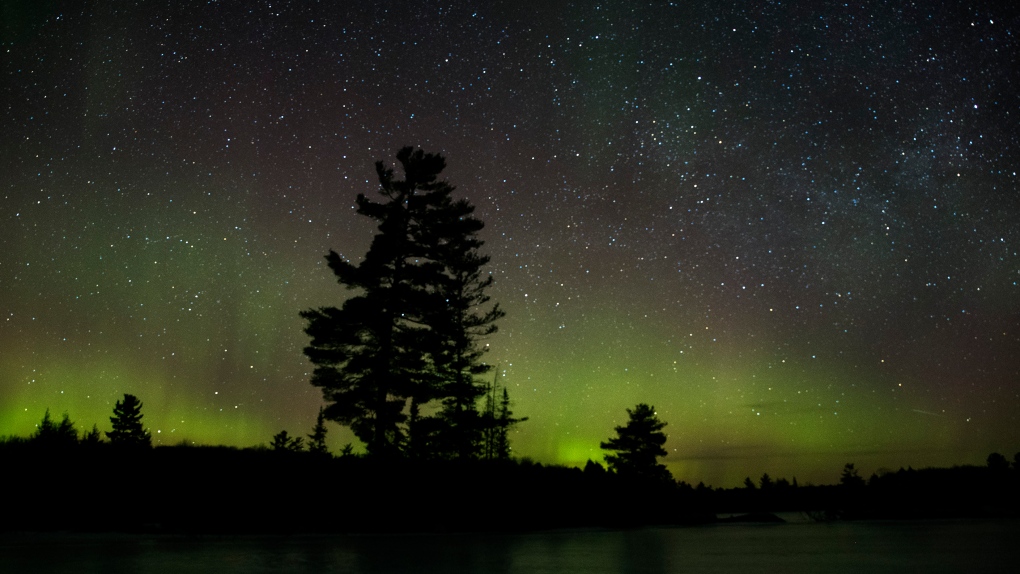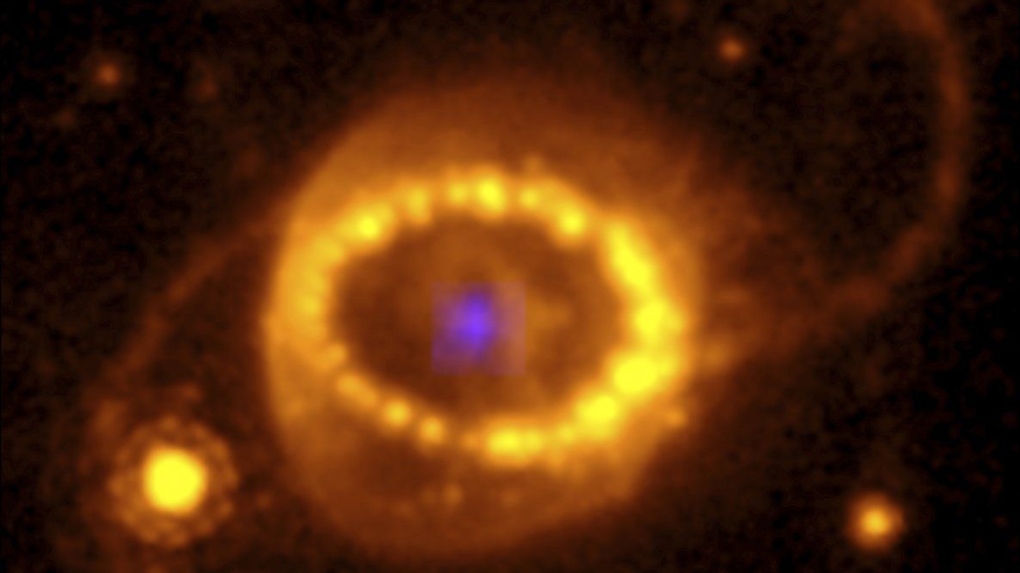A rare and severe solar storm is expected to bring spectacular displays of the northern lights, also known as aurora borealis, across much of Canada and parts of the United States on Friday night.
The U.S. government’s National Oceanic and Atmospheric Administration (NOAA) issued the first geomagnetic storm watch at the second highest level of G4 since 2005. Geomagnetic storms have five ratings based on severity of their impact, from G1 (minor) to G5 (extreme).
The evening light spectacle, which usually presents in a milky greenish colour, is expected to be visible in most of Canada. There’s a lower chance of visibility in parts of Nunavut, Newfoundland and Labrador, New Brunswick and Prince Edward Island. It likely won’t be visible in Nova Scotia. In the United States, it could be visible as far south as Alabama and Northern California, according to the U.S. government’s National Oceanic and Atmospheric Administration (NOAA).
Auroras are sparked by the sun’s energy and electrically-charged particles in the Earth’s magnetic field.
This map shows the areas where the northern lights could be seen in parts of Canada and the United States on Friday, May 10, 2024. (NOAA)
After a series of solar flares and coronal mass ejections that began May 8, experts are monitoring the sun and space assets for a geomagnetic storm. Coronal mass ejections are explosions of plasma and magnetic fields from the sun’s corona. They cause geomagnetic storms when they are directed at Earth.
At least five Earth-directed flares linked to coronal mass ejections are expected to arrive as early as midday Friday and persist through Sunday, the U.S. weather agency said.
“Geomagnetic storms can impact infrastructure in near-Earth orbit and on Earth’s surface, potentially disrupting communications, the electric power grid, navigation, radio and satellite operations,” the U.S. government’s National Oceanic and Atmospheric Administration wrote in a press release.
It said it notified the operators of these systems “so they can take protective action.”
Severe geomagnetic storms can cause possible widespread voltage control problems and some protective systems will mistakenly trip out key assets from the grid, according to NOAA.
Additional solar eruptions could cause geomagnetic storm conditions to persist through the weekend, it added.
Over the past few days, several strong flares were observed and associated with a large and magnetically complex sunspot cluster that is 16 times the diameter of Earth.




